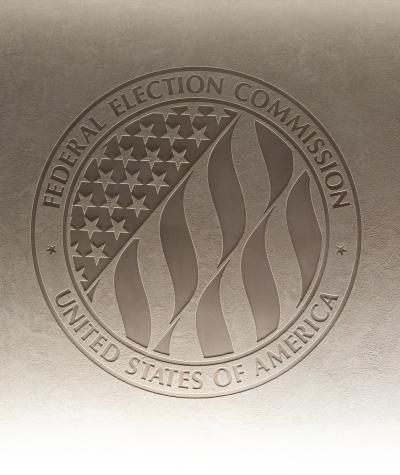Our country’s campaign finance system is increasingly plagued by corruption and a lack of accountability. This is due in large part to dysfunction at the Federal Election Commission (FEC), the federal watchdog agency charged with administering and enforcing campaign finance laws relating to races for the U.S. House, Senate, vice presidency and presidency.
The FEC was created 47 years ago on Oct. 15, 1974, when the campaign finance abuses and corruption of the Watergate scandal were still fresh of mind and elected officials wanted to prevent similar abuses from occurring in the future.
The goal was to have the FEC be an agency that could administer and enforce campaign finance laws and ensure the public has access to information about the raising and spending of money used to influence federal elections.
However, in recent years, the agency has struggled to achieve this goal. Since the mid-2000s, congressional opponents of campaign finance reform have prioritized the recommendation and confirmation of FEC Commissioners who are ideologically opposed to campaign finance laws and their enforcement.
Consequently, the agency has deadlocked on a greater number of enforcement matters. As the FEC itself admitted to the Committee on House Administration in 2019, it has had at least one deadlocked vote in more than half — 50.6% — of the enforcement matters it has considered since 2012.
The current structure of the agency contributes to the prevalence of deadlocking and dysfunction. The FEC was created to have six Commissioners, with no more than three from any given political party, and it takes the votes of four of those six to write new rules or take any substantiative action on an enforcement matter.
A glaring weakness in this structure is that just three of the six Commissioners can block the agency from doing its job.
For instance, the FEC’s nonpartisan general counsel could recommend an investigation into an important enforcement matter, but a majority — four out of six — Commissioners would have to vote in favor of the investigation before it could move forward.
As a result, the FEC has been prevented from enforcing the law on important issues like illegal coordination and disclosure of the true sources of secret spending. It has also been unable to update existing disclosure rules to account for the dramatic shift of political campaigning to social media platforms and streaming services.
Indeed, the FEC recently observed another notable anniversary— Oct. 13, 2021 — which marked 10 years since the agency first asked the public whether its regulations should be updated to require more transparency for digital election ads.
Despite enthusiastic support from tens of thousands of people and organizations, the FEC has still failed to update those rules.
The failure of the FEC to do its job has undermined voters’ right to know who is secretly spending big money to influence our elections, allowed wealthy special interests to exert more power and helped political corruption proliferate.
To ensure that the agency can succeed in decreasing corruption and increasing transparency and accountability in our political system, we must change the agency’s structure to make it easier for the Commission to enforce and update campaign finance laws.
Right now, there is new and transformative legislation before the Senate that would address these issues and strengthen the FEC’s enforcement abilities. This bill, called the Freedom to Vote Act, would require a majority vote of the Commission to shut down an investigation at the preliminary stages of the process.
Specifically, under the Freedom to Vote Act, a majority of the Commissioners must vote to overrule the FEC general counsel within 30 days if they reach a different conclusion from the general counsel as to whether or not there is reason to believe that the law has been violated.
With this new rule in place, it would take a majority of Commissioners to prevent the agency from moving forward with the necessary steps to take action on important enforcement matters.
Additionally, the Freedom to Vote Act would further bolster the agency’s enforcement tools and limit bad actors’ options for avoiding accountability by extending the statute of limitations for pursuing civil and criminal enforcement of federal campaign finance law from five to 10 years.
To reduce political corruption, we need a stronger FEC to enforce campaign finance laws and hold political candidates and their donors accountable. We must act now to ensure that the FEC can fulfill the mission of effectively overseeing our campaign finance system in the 21st century.
